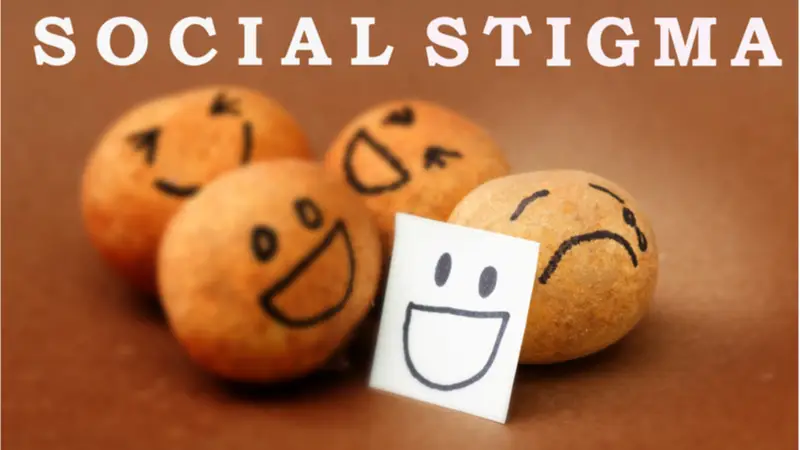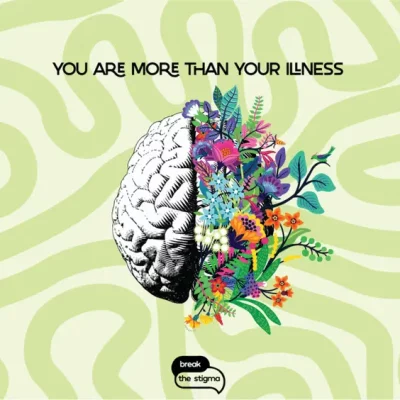Mental Health Stigma: What it is and How it Works
Stigma can be defined as the collection of stereotypical beliefs and prejudiced attitudes that elicit unfavorable outcomes for a specific social group. This group is isolated as “other” by the dominate society, directly causing the negative consequences for group members. A person is prompted to act in prejudiced and discriminatory ways when an environmental cue activates a corresponding stereotype. Common stereotypes held of individuals with psychological disorders include violent and dangerous tendencies, weak natures, and childlike dispositions. Continued socialization and acceptance of these ideas and related values concerning mental health contribute to a harmful cycle, which gives rise to three main types of stigma: social stigma, self-stigmatization, and label avoidance.
Social Stigma and Mental Health
Social stigma consists of the judgments held by the general public. This type of stigma can be further divided by the two forms of stigmatized traits: visible and hidden stigmas. Visible stigma occurs due to easily identifiable indicators, which may evoke an observer to respond directly towards the trait. For instance, a person exhibiting psychotic symptoms or an unkempt appearance may fit stereotypes linked to mental illnesses. Under different circumstances, someone with a psychological disorder may choose not to disclose their diagnosis. This aligns with hidden stigma, a stigmatized trait that can be concealed but still results in harmful outcomes due to negative societal beliefs.

Self-Stigmatization
Self-stigmatization occurs when a member of a stigmatized group internalizes attitudes advocated through social stigma and applies them towards the self. Three steps occur in this process: awareness, agreement, and application. First, a person must know the existence and content of stereotypes toward the group, as well as the situational cues they are linked to (i.e. visible and hidden indicators). The individual then internalizes the values and believes them to be true. Due to agreement with the value systems, activation of the stereotypes leads to application towards the self.
Label Avoidance
Individuals who have not been diagnosed with a psychological disorder also suffer from stigma in the form of label avoidance. This type of stigma encourages others to actively separate themselves from being categorized as inclusive with the out-group in order to evade the same damaging consequences. Because the individual is determined to avoid applying the stereotypes toward the self, they will refrain from personal association and professional care related to mental health in an attempt to bypass prejudice and discrimination.
The Consequences
Society often categorizes psychological patients as aggressive, hostile, and unpredictable. Framing individuals as dangerous leads to a public fear of people with such disorders. Another popular rhetoric is that the individual is responsible for their health; that is, one experiences a mental illness because of exaggeration or inability to adequately manage life’s troubles. Shifting blame and control onto an individual generates ideas of a person as weak and incapable by permitting the self to remain in an undesirable situation. These attitudes may create resentment and anger. The third common trend relates to benevolence, in which a person with a mental illness is believed to require an adept parental figure for guidance. This attitude can lead to childlike treatment and stripping of agency for people experiencing mental illnesses. Limited job opportunities, loss of meaningful and positive relationships, poor self-esteem, discouragement from setting and achieving goals, detriment from helpful treatment plans – consequences affecting those targeted by mental health stigma.
Makin Wellness is making a Difference!
Normalizing the reality of mental health in society can greatly alleviate the negative effects that result from mental health stigma. The following list provides a few ideas to help:
- Advocate. Challenging what others say in daily interactions or joining reform movements are great ways to showcase the reality and prevalence of mental illnesses.
- Educate. Negative beliefs are often rooted in misconceptions and false information. Encourage yourself and others to learn the facts, and share them!
- Interact. Formal and informal exchanges are great ways to introduce positive frameworks for people with mental illnesses by humanizing them.
- Empower. See yourself and others as capable, meaningful, and able to live life to the fullest!
Makin Wellness providers are specialized to provide you the best quality care for your mental wellness needs. If you or someone you love is have troubling experiences with mental health, please reach out to our office at (412) 532-1249 or email [email protected] to schedule an online appointment with one of our counselors! You can also explore our website to learn more about mental health!

Carnegie Mellon University
Clinical Psychology and Gender Studies Research Intern







